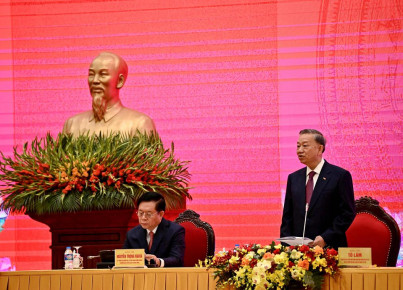The results showed a head-to-head contest between the two coalitions that is unlikely to destabilize the Unity Government. The nationalist-Malayu front won Kelantan, Kedah and Terengganu, among Malaysia's poorest states
Article by Aniello Iannone
Department of Politics and Government Studies Diponegoro University
A few weeks ago, state elections in Malaysia concluded in 6 of the 13 states. At the polls both the coalition government PH (Pakatan Harapan , allied with BN (Barisan Nasional) and led by PM Anwar Ibrahim, and the opposition with the coalition PN (Perikatan National) and PAS secured 3 states each, mirroring pre-election predictions. The elections were an important test for Anwar to analyze the level of political polarization among the population in response to the previous general elections that occurred 9 months ago and the political crisis that, since 2018, has seen 4 different governments fall in less than 4 years as a result of internal strikes and political-economic instability post-pandemic from COVID-19. However, the importance of this election lies in the vote cast. Malaysia remains a country with a high level of ethnic national debate in politics and for decades, under UMNO hegemony, has been characterized by a pro-Malayu-Islam narrative with policies that have created some tension with the other part of the Malaysian population, namely those of Indian and Chinese origin.
The results showed a head-to-head contest between the two coalitions that is unlikely to destabilize the Unity Government. The nationalist-Malayu front led by the PN coalition won Kelantan, Kedah and Terengganu, among Malaysia's poorest states, winning two-thirds of the electorate. In detail, PH was completely defeated, managing to snatch only 3 seats from PN out of 36 in Kedah. In Kelantan the situation was worse, where Anwar managed to win only 2 out of 45 seats. In Terengganu, on the other hand, all 32 seats went to PN. Kedah, in particular (but also Kelantan and Terengganu), was swept into the last 2022 elections by the green wave (referring to the color of PAS, the Pan-Malaysian Islamic Party and an important member of the PN coalition), where PN won 14 out of 15 seats, minimizing BN's influence in the region.
PAS itself can be considered the winner of these elections, emerging from the green wave managed to show its importance within the PN coalition. However, this emergence of PAS could have major consequences both vis-à-vis other PN coalition parties such as BERSATU and for the unity government given PAS's extremist national-Islamic nature. Ideologically and historically, PAS has a nationalist political philosophical framework, born in 1951 during conservative Muslim meetings between Kuala Lumpur and Pengan and heavily influenced by the Egyptian revolution and the rise of the Muslim brotherhood in the Middle East and the Khomeinist revolution in Iran. However, an important difference from other dominant nationalist parties, such as UMNO, is the role of Sharia-based ideological Islam. This also explains its victory in elections in Malay-Islam-dominated states such as Kelantan.
The progressive PH coalition, allied with BN (which in this context is an extension of UMNO within the ruling coalition and is the only nationalist party in the coalition), currently leads the government with Anwar as its leader. Instead, it won the states of Selangor, Negeri Sembilan, and Penang. This result appears balanced, at least on first analysis, and maintains the status quo. Out of a total of 13 states, elections were held in 6 of them, of which 3 went to the opposition with a large majority. Moreover, even in the richest states in the country, such as Selangor, the political battle between the two parties saw PN succeed in part, managing to win 22 out of 56 seats and preventing PH from gaining a majority in the Selangor assembly.
Nine months after the 15th general elections, the state elections were an important test for the Anwar-led unity government. Out of 6 states in which elections were held, the opposition, particularly the Islamic nationalist right, won a majority in 3. The current result will not result in a change of the status quo in the country, which is led by the unity government under the leadership of Anwar's progressive coalition. However, at this time the government should focus on preserving popular support, especially in Malayu majority areas. Any lack of support from both the public and the electorate could prompt the opposition to call for the holding of new general elections.






